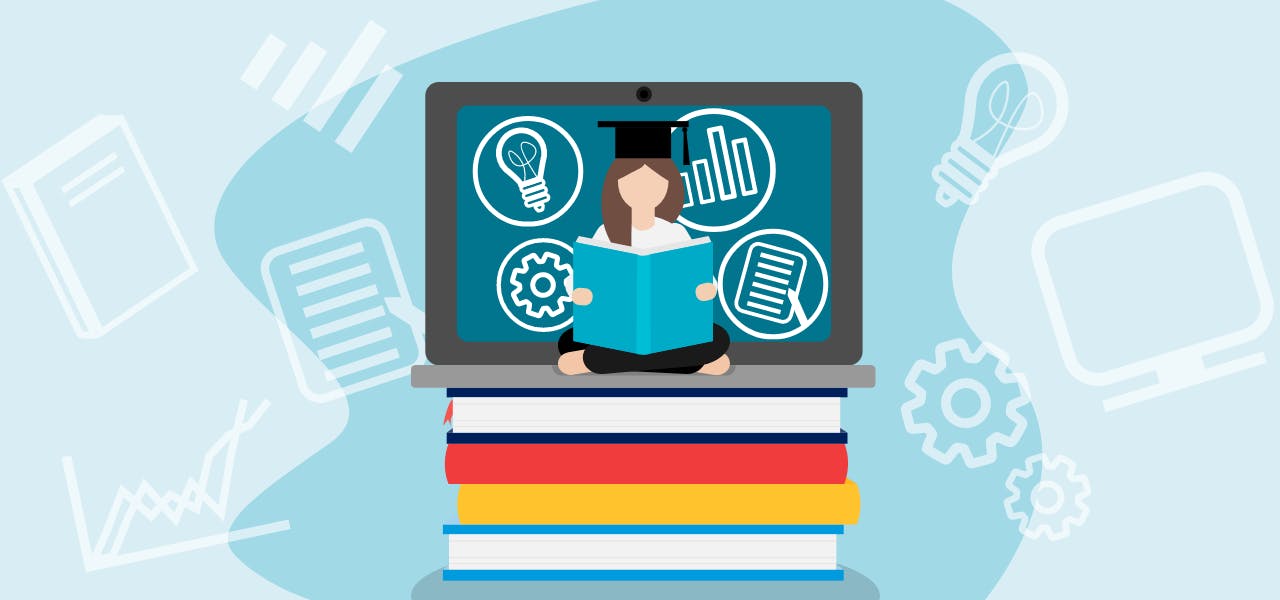The history of scholarship through academics is a long and respected one, marked by periods of growth and change through societal and technological evolution. But today’s scholars are dealing with having to adapt to changes at a breakneck speed never before encountered with the innovations brought about by the Digital Era.
“Digital scholarship” is the defining ideology for academics to be successful anymore. This term refers to any activity that uses digital media to teach knowledge or research ideas. Education and science have now evolved to where the digital perspective is the norm in which all ideas must be approached, and this has caused many researchers to have to redefine their own scholarship in an ever-changing world.
What is Digital Scholarship?
The definition of digital scholarship itself is fluid since digital technology itself is constantly evolving. Adaptations must be flexibly met in order to keep up with the changes.
In general, though, the term “digital scholarship” refers to using digital evidence to compile research through the methods chosen, the way the researcher(s) author(s) their submissions, avenues in which their work is published, curated and preserved, and how their work is then used and reused by others.
When researchers use technology to approach their work, and then to find the outcomes and publish them, they are using a digital scholarship.
The Benefits of Digital Media
Anyone in the academic profession, from librarians to researchers and stakeholders, must become proficient in the field of digital scholarship to be successful today. There are many benefits that go along with digital media use that can’t be overlooked in the breadth of their importance.
Digital media consists of a variety of resources that are available for general or specialized use on the web can be created to be interactive, and are curated and stored in repositories and archives. Libraries in worldwide institutions play crucial roles in how these mediums are made available to academics, how the work is preserved, and how it is able to be disseminated to those in need of the knowledge provided.
Digital media has significant advantages over its paper-published counterparts, such as:
● Making interactions and connections easier between the researcher, their peers, the participants in the project, and the audience in general
● Increasing the speed in which the work can be completed since the researcher has faster access to data, improved technology with better calculations and projection capabilities, and less wait time in between analyses
● More opportunities for researchers to cooperate and share information with, as well as learn from, other experts around the world
● Increased efficiency with tasks that can be set up to be automated so researchers can concentrate on going deeper into their work
● More information storage capacity, allowing electronically published files to be stored in repositories and archives for future access
● Easier abilities to correct, amend, and edit work once it has already been published without having to release revised publications in expensive print format
These benefits make it clear that digital media is going to become the preferred format of use and publication for researchers in industries around the globe, and with good reason.
Methods of Using Digital Technology in Academics to Redefine Your Scholarship
The more digital technology you are proficient or excelling at as an academic, the more clearly you will be able to redefine your scholarship in research. It may mean that you have to go back to the basics and get an entirely new education when you thought your school days were over, but more knowledge, particularly in the field of digital technology, is never a bad thing.
Consider learning the foundation of science in the Digital Era through methods such as:
● Coding, taking the old HTML/CSS and replacing it with complex programming languages as they come across the scene, like Python, to help you create your own publishing opportunities
● Learning about the benefits of open data
● Exploring the world of graphic design computer programs to help you turn data in visual formats
● Adapting your social media to be used for academic purposes
● Learning how to optimize your research content through SEO, keywords, and other resources
● Utilizing academic platforms to connect with peers and experts around the world
All of these digital activities will boost your research scholarship and become useful as you continue your career.
Impactio Can Enhance Your Digital Scholarship
It can be intimidating to go digital if you’re not used to it, but when you work with a program that makes it easy to do everything you need, like Impactio, the transition becomes seamless.
Impactio is an all-in-one platform designed for academic experts. The hard work of digital profiling is simplified through premade templates, professional layouts, and easy program options that walk you through taking your work from start to published and beyond.
Whether you’re ready to compile your findings, check your impact level through citation indicators, or connect with peers on the Impactio network around the world, it’s all there for you in smooth, easy to use parts when you turn to Impactio to enhance your digital scholarship abilities.
